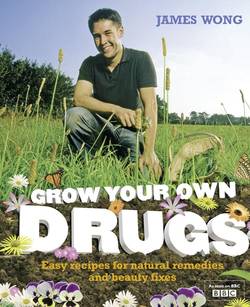Читать книгу Grow Your Own Drugs: A Year With James Wong - James Wong - Страница 37
Tinctures
ОглавлениеWhen you use alcohol to extract the active ingredients from plants, it’s called a tincture. Alcohol is more effective than oil and vinegar at extraction from tough plant material such as roots and resins. It’s also a good preservative, so tinctures last longer than other preparations, and as they are more concentrated, you use less. These recipes mostly specify vodka because it is colourless and almost tasteless, which allows the flavour of the plants to come through. But whisky, brandy, gin or rum are just as effective – any distilled alcohol can be used as long as it is at least 80% proof (ie 40% alcohol). If made with concentrations below that, tinctures will deteriorate more quickly.
Tinctures are very handy – they’re easy to store, and give you concentrated plant goodness whenever you need it. They’re usually taken a teaspoonful a day when required, and they work fast, being absorbed quickly into the bloodstream. If you don’t want to take alcoholic tinctures, an alternative is a glycerite.
To make a tincture: three-quarters fill a small Kilner or glass jar with plant material, then cover with the alcohol of your choice, making sure all the plants are completely submerged. Seal, and leave in a dark place at room temperature for between 8 days to 1 month (the length of time depends on the ‘toughness’ of the plant material – resins and roots take longer than flowers and leaves). Shake the bottle occasionally, making sure all plant material remains covered. When ready, strain into small, dark glass bottles.
Storage Using amber, black or blue glass will help preserve the tincture longer. Kept in a cool, dark place, tinctures will last for 2 years (and sometimes longer).
